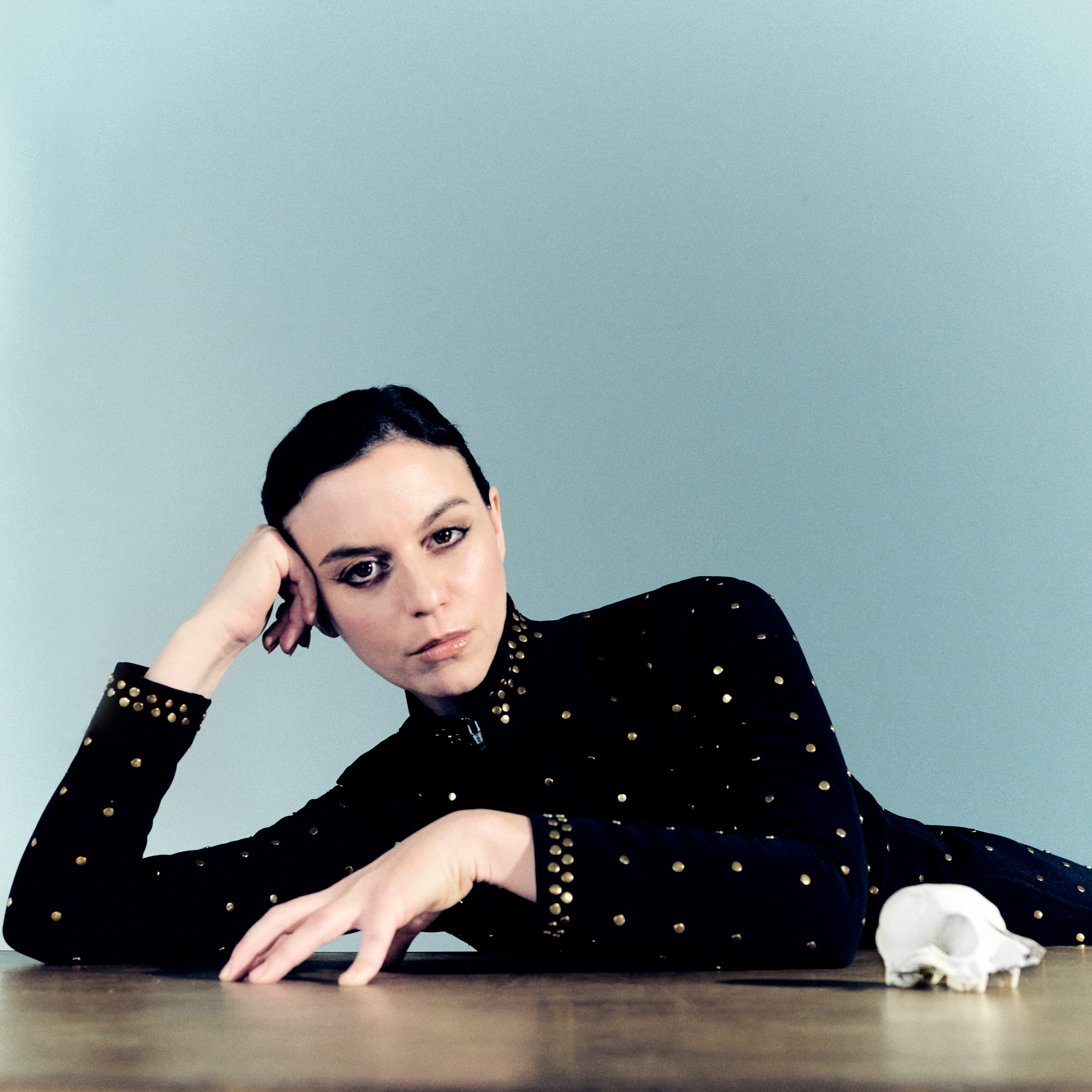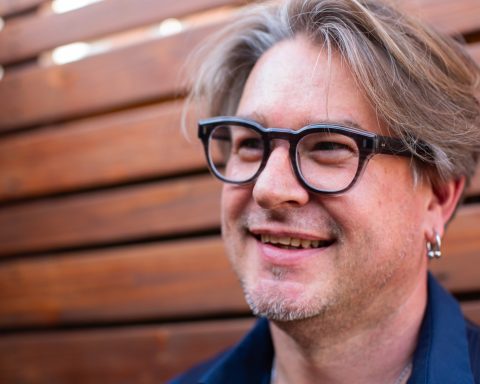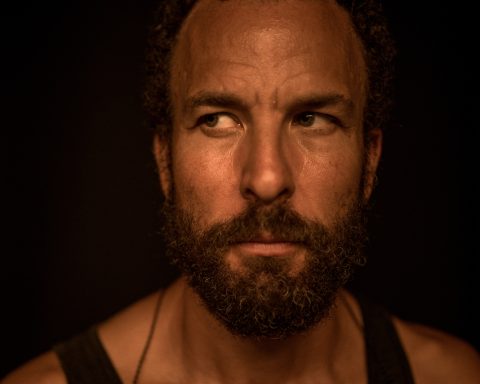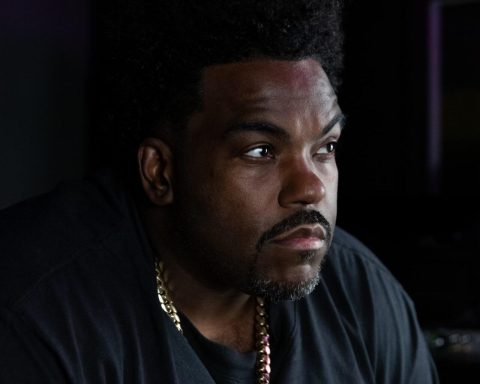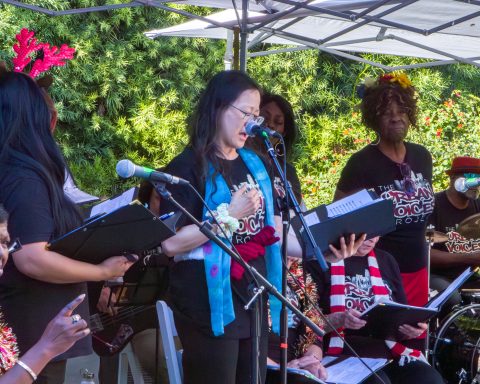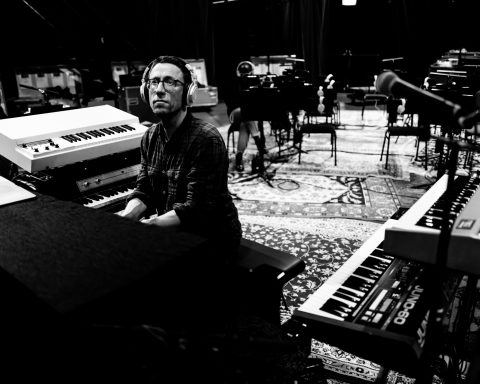Even for a self-professed “thinker” like herself, the sounds and observations on Angel Deradoorian’s new collection Ready for Heaven are a wealth of intentional audio poetry. Spanning Can-style repetition on “Any Other World” and “Golden Teachers” to the lush ’70s setting of “Set Me Free,” the record is mind-expansive by design. With lyrics like “looking for the unborn son to save the day” on “Digital Gravestone,” it would be easy to paint the album with a grim brush. But the songs are also intermittently joyous, with sinuous saxophone and Deradoorian’s voice testifying on near-soul workouts like “Reigning Down” and “No No Yes Yes.”
She began playing music at an early age in Orangevale, CA and was flying between festivals with Dirty Projectors by her early 20s. Since then, Deradoorian has continued to add to a sweeping discography of celebrated solo albums and guest spots for everyone from U2 to Brandon Flowers. “My music practice has always been to become self-realized as much as possible,” says Angel Deradoorian from her Los Angeles home, “which means taking responsibility for my emotions and becoming more conscious of them.”
Surreal Vulnerability
A lyric from the album opener, “Storm In My Brain,” goes, “I don’t want to lose it again.” What are you holding onto?
Sanity, quite simply. In our society, we’ve been taught to go against our intuition. There’s a lot alluding to that on the album: losing your integrity or your values to appease a situation because you feel in a state of scarcity or the unknown.
It’s definitely a song about mental health. When you’re a creative person for a living, you’re going through so many changes all the time. There are so many unknowns and moments of feeling desperate. It’s a very simple lyric on purpose. I wasn’t trying to make it anything other than very obvious.
Your music is very surreal, and yet there’s incredible emotional vulnerability. How do you traverse those worlds?
It’s funny because when I started making music, it was so unconscious. When I was a teenager and releasing music on Myspace, it was emotional and impactful for other people. I’m not afraid of my feelings or my process, because the music isn’t specifically for me. It’s a reflection of the human consciousness.
My sphere of reality is that I’m a highly sensitive person and am very affected by the world and other people’s energies. Music is always a documentation of my spiritual and emotional development. It can’t really be too shrouded. The job of an artist or musician is to be a mirror—a conduit, a communicator of sorts.
"The job of an artist or musician is to be a mirror—a conduit, a communicator of sorts."
Cutting It Up
What was the Ready for Heaven recording process like?
It was the weirdest so far. I started writing the songs in 2022 and did some initial recording sessions in early 2023 at 64 Sound in Highland Park. I had musicians come in and work within the frame, like these loose frameworks of the tracks. The majority of drumming is done by Andrew Maguire, who was instrumental in helping me get organized.
Then Dylan Fujioka came in and did some supplemental drumming, and I had a few different guitarists play. I ended up doing the majority of the bass; I’m really picky about bass, so I kept reworking that.
When those recordings were done, I repurposed a lot of the tracks. I edited the stems from those and made them into new songs. There was a lot of editing and collaging music. I don’t think I would do it again. It was a treacherous process, but I learned a lot about editing and how important it is to have sounds you like.
"When those recordings were done, I repurposed a lot of the tracks. I edited the stems from those and made them into new songs."
Bowie and Radiohead created a lot of cut-up art. It’s like making a painting; only you can know when it’s finished.
This era we’re in, you have access to systems where you can work at home, in headphones—you have a lot of freedom. And that’s how a lot of artists have to work because we’re on independent labels and self-funding. We have to be very mindful about how we expand our energy and finances. But to do a Bowie-type session and be in the studio for a few weeks? I would love that.
School Days
Prior to your solo career, you played in bands. What did you like about that experience?
I did my time in other people’s bands. Although I love playing music with people, I consider Dirty Projectors going to school. I was a student, and I learned a lot about rehearsing, ways to get deep into playing the instrument, how to independently sing and play simultaneously, how to tour, learning the basics of the music industry.
I like being a good worker, and I have gained a lot of satisfaction in serving someone else’s vision. But doing my own music was always a goal. Now, if I play in bands, I like it to be more collaborative or friendly. Everyone is having fun more than it being this intense goal.
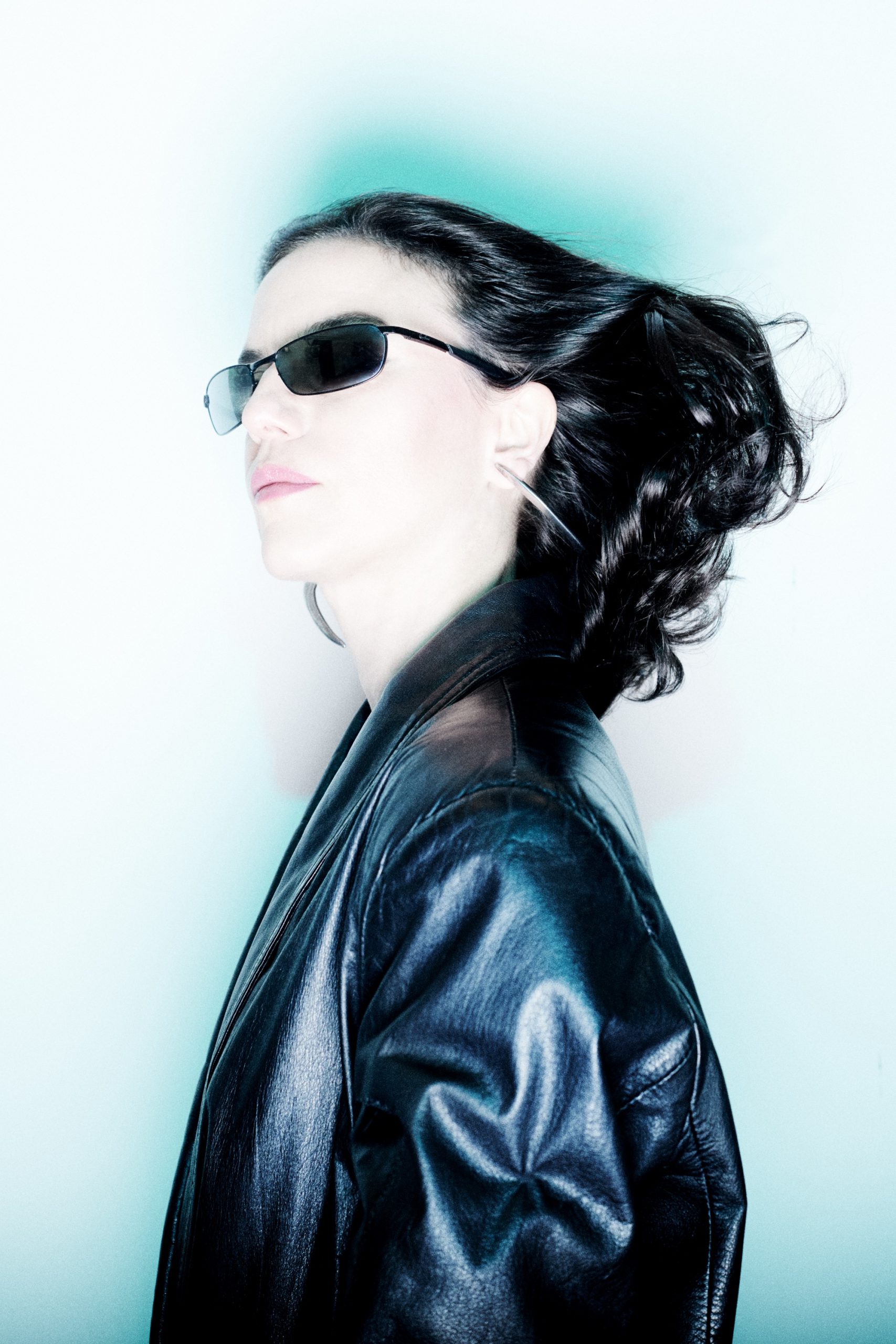
What kind of presentation do you have in mind for the current Deradoorian live show?
The shows with DARKSIDE are gonna be solo, and they’ll be reinterpretations of the songs from the album. Usually, a lot of my sets are partially improvised, experimental, and instrumental. It’s really important to me to have a lot of space. Then, for the record release show, I’m putting a band together to do justice to the album live. Maybe there’ll be more opportunities for that once the album comes out.
"I consider Dirty Projectors going to school. I was a student, and I learned a lot about rehearsing and the basics of the music industry."
Digging the Past
How do you discover new music?
I used to dig more. Now, I leech off of my friends who are audiophiles. It’s overwhelming for me when I’m presented with a lot of information. I hate going to record stores and hate shopping for clothes.
I learned about some of my favorite bands at a very young age and then slowly explored those genres of music—like Can, my favorite band. Buying a record was so stressful. It was like, “Hey, I’m broke. I gotta eat.”
What was your upbringing like in terms of creative encouragement?
We grew up with music in the house all the time. My dad is a saxophonist, so he played music every day in the house. My dad liked blues, R&B, and James Brown, which were massive influences on me, even if people can’t tell.
My brother, sister, and I all started learning instruments around the same age, but I’m the youngest, so I started technically the youngest. I started on violin and then switched to piano, and my brother started drums. So, the whole house was just full of music, and it was really loud.
"I used to dig more. Now, I leech off of my friends who are audiophiles. It’s overwhelming for me when I'm presented with a lot of information."
On “Reigning Down,” are you playing a JUNO-60?
Yes, I have a JUNO-60, and there are live videos on my Instagram from quarantine where I’m playing all my Rolands. I have a TR-8 and like it because I can trigger other stuff with the MIDI. I absolutely love Roland.
What are some non-musical influences that make their way into your music, like cinema and literature?
For sure. I love film. I was getting some Pasolini images making this record, which might sound random, but I’m image-minded—the beauty of film or photography. You might be making a sound and getting an image, then rolling between the two.
I love Terence McKenna and neuroscience. I have a lot of astrology references in my music because I practice Vedic astrology. These are all things that fascinate me. I’m very into consciousness, and how far out your mind can go.
